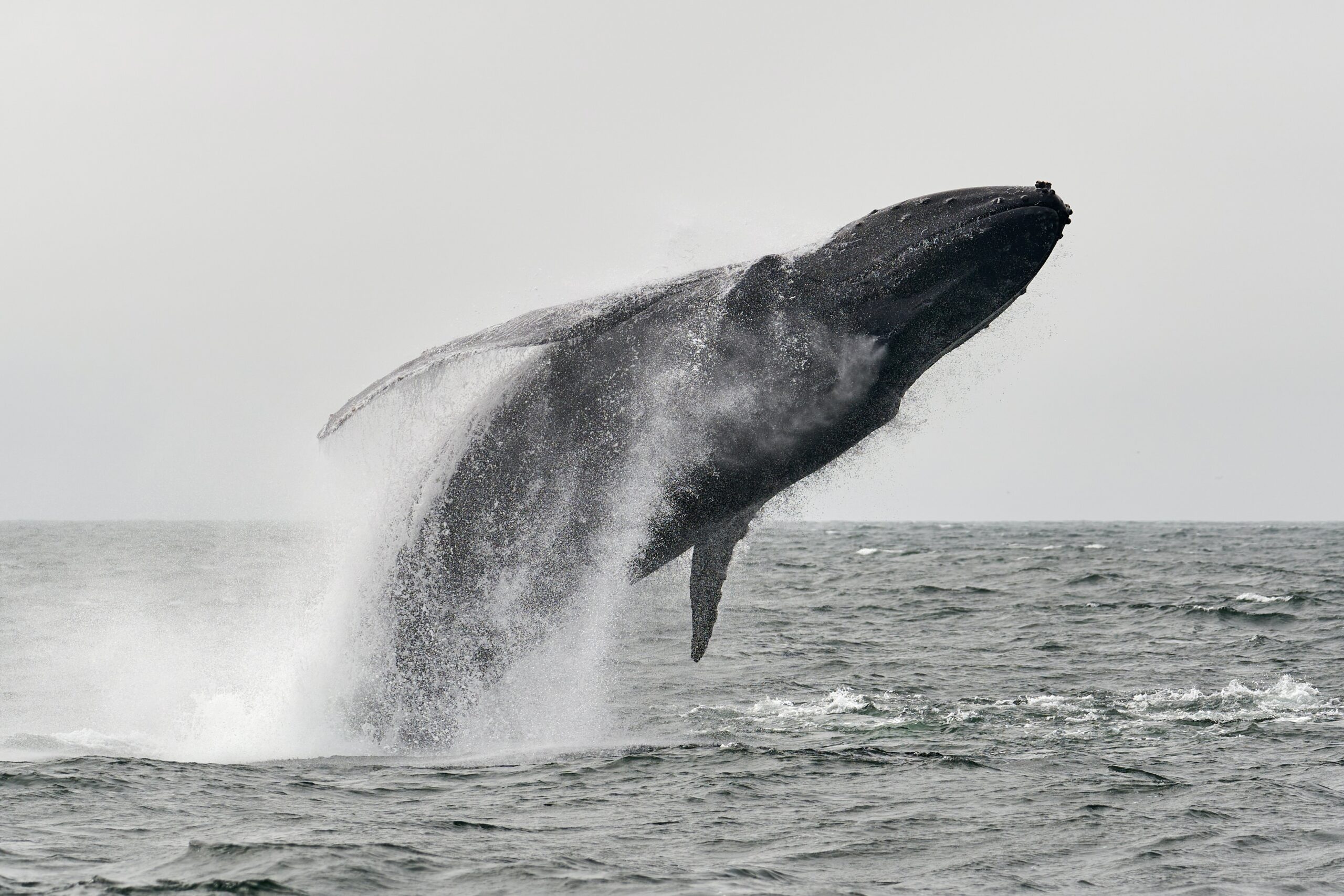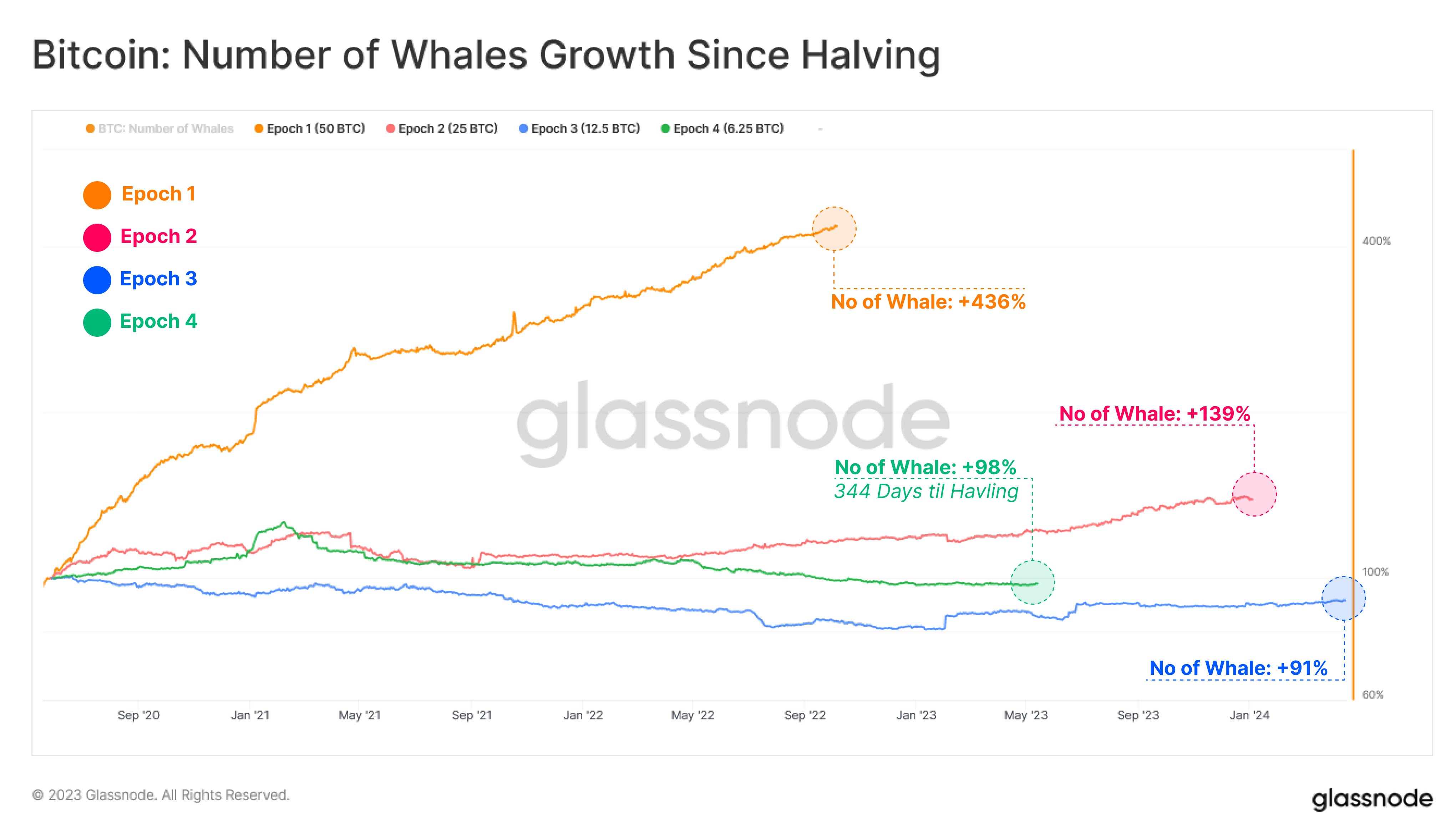On-chain data from Glassnode shows the Bitcoin whales have recently broken a pattern that was previously held through the halving cycles.
Bitcoin Whale Growth Had Previously Been Diminishing With Each Cycle
According to data from the on-chain analytics firm Glassnode, the current cycle is displaying an interesting deviation from the rule followed during the last few cycles.
Here, the cycles or the “epochs” for the cryptocurrency have been defined using the halving events. “Halvings” are periodic blockchain events that permanently cut in half the block rewards that the miners receive for solving blocks.
These events occur every time 210,000 blocks have been mined on the network, or approximately every four years. The reason they are generally selected as the start and end points for BTC cycles is that they carry profound impact on the economics of the market as the production rate of the asset is cut in half following them. This increase in the scarcity of the asset is a narrative so strong that bull runs have always followed the halving events.
The next halving is supposed to take place sometime in the first half of next year. Currently, miners receive 6.25 BTC for every block that they mine, so following this next event, they will only receive 3.125 BTC in their rewards.
Now, there have been many patterns that have held throughout the Bitcoin cycles, but one such trend looks to be breaking down with the latest epoch, as the below chart highlights.
The metric of interest here is the percentage growth that the number of whales have registered during each of the epochs. The analytics firm has defined “whales” as entities that are holding at least 1,000 BTC in their wallets.
Note that entities here don’t just refer to individual wallets, but also “a cluster of addresses that are controlled by the same network entity,” which are “estimated through advanced heuristics and Glassnode’s proprietary clustering algorithms.”
From the chart, it’s apparent that the number of whales went up by 436% in the first cycle, while they only went up by 139% in the second one. The third one saw even less growth at about 91%.
This would indicate that with each of these Bitcoin cycles, while the BTC whales had continued to increase in number, their percentage growth had been diminishing.
The current cycle, however, seems to have turned out different from these past cycles so far, as the growth in the number of whales has actually been stronger than the previous epoch this time.
Whales have grown by 98% since the start of the cycle, but it’s worth noting that there are still around 344 days to go before the next halving event. It now remains to be seen whether the indicator resumes the trend from the last epochs before the end of the current one, or if the cycle will truly end with the pattern being broken.
BTC Price
At the time of writing, Bitcoin is trading around $27,000, down 2% in the last week.











